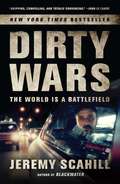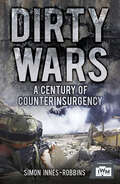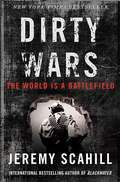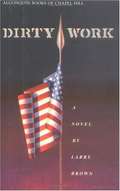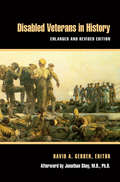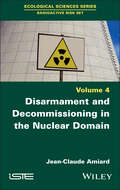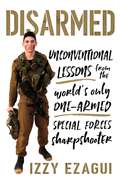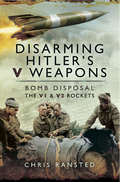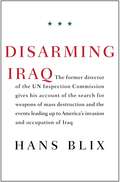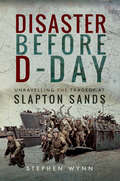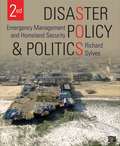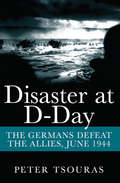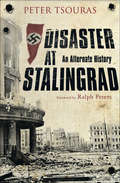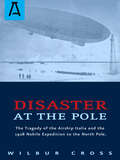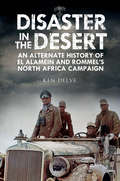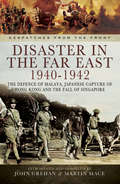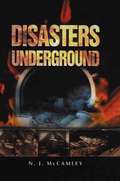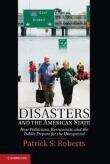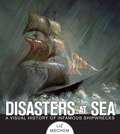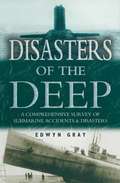- Table View
- List View
Dirty Wars
by Jeremy ScahillIn Dirty Wars, Jeremy Scahill, author of the New York Times best-seller Blackwater, takes us inside America's new covert wars. The foot soldiers in these battles operate globally and inside the United States with orders from the White House to do whatever is necessary to hunt down, capture or kill individuals designated by the president as enemies.Drawn from the ranks of the Navy SEALs, Delta Force, former Blackwater and other private security contractors, the CIA's Special Activities Division and the Joint Special Operations Command ( JSOC), these elite soldiers operate worldwide, with thousands of secret commandos working in more than one hundred countries. Funded through "black budgets," Special Operations Forces conduct missions in denied areas, engage in targeted killings, snatch and grab individuals and direct drone, AC-130 and cruise missile strikes. While the Bush administration deployed these ghost militias, President Barack Obama has expanded their operations and given them new scope and legitimacy.Dirty Wars follows the consequences of the declaration that "the world is a battlefield," as Scahill uncovers the most important foreign policy story of our time. From Afghanistan to Yemen, Somalia and beyond, Scahill reports from the frontlines in this high-stakes investigation and explores the depths of America's global killing machine. He goes beneath the surface of these covert wars, conducted in the shadows, outside the range of the press, without effective congressional oversight or public debate. And, based on unprecedented access, Scahill tells the chilling story of an American citizen marked for assassination by his own government.As US leaders draw the country deeper into conflicts across the globe, setting the world stage for enormous destabilization and blowback, Americans are not only at greater risk-we are changing as a nation. Scahill unmasks the shadow warriors who prosecute these secret wars and puts a human face on the casualties of unaccountable violence that is now official policy: victims of night raids, secret prisons, cruise missile attacks and drone strikes, and whole classes of people branded as "suspected militants." Through his brave reporting, Scahill exposes the true nature of the dirty wars the United States government struggles to keep hidden.
Dirty Wars
by Jeremy ScahillThis enhanced edition for Apple tablets features over thirty images, including film stills from the Oscar-nominated documentary Dirty Wars, as well as exclusive photographs of Scahill’s reporting in Yemen and Somalia. This edition also features interactive color maps, as well as seven short videos that include the film trailer, clips from the film, and interviews with Scahill. In the video interviews, Scahill shares his insights on the history of drones, President Obama’s hawkish foreign policies, and the killing of Anwar al-Awlaki. In Dirty Wars, Jeremy Scahill, author of the New York Times best-seller Blackwater, takes us inside America’s new covert wars. The foot soldiers in these battles operate globally and inside the United States with orders from the White House to do whatever is necessary to hunt down, capture or kill individuals designated by the president as enemies. Drawn from the ranks of the Navy SEALs, Delta Force, former Blackwater and other private security contractors, the CIA’s Special Activities Division and the Joint Special Operations Command ( JSOC), these elite soldiers operate worldwide, with thousands of secret commandos working in more than one hundred countries. Funded through #147;black budgets,” Special Operations Forces conduct missions in denied areas, engage in targeted killings, snatch and grab individuals and direct drone, AC-130 and cruise missile strikes. While the Bush administration deployed these ghost militias, President Barack Obama has expanded their operations and given them new scope and legitimacy. Dirty Wars follows the consequences of the declaration that #147;the world is a battlefield,” as Scahill uncovers the most important foreign policy story of our time. From Afghanistan to Yemen, Somalia and beyond, Scahill reports from the frontlines in this high-stakes investigation and explores the depths of America’s global killing machine. He goes beneath the surface of these covert wars, conducted in the shadows, outside the range of the press, without effective congressional oversight or public debate. And, based on unprecedented access, Scahill tells the chilling story of an American citizen marked for assassination by his own government. As US leaders draw the country deeper into conflicts across the globe, setting the world stage for enormous destabilization and blowback, Americans are not only at greater risk#151;we are changing as a nation. Scahill unmasks the shadow warriors who prosecute these secret wars and puts a human face on the casualties of unaccountable violence that is now official policy: victims of night raids, secret prisons, cruise missile attacks and drone strikes, and whole classes of people branded as #147;suspected militants. ” Through his brave reporting, Scahill exposes the true nature of the dirty wars the United States government struggles to keep hidden.
Dirty Wars
by Jeremy ScahillFrom the International Bestselling author of Blackwater comes the story of AmericaOCOs global killing machine. "
Dirty Wars: A Century of Counterinsurgency
by Simon Innes-Robbins‘Who is the enemy?’ This is the question most asked in modern warfare; gone are the set-piece conventional battles of the past. Once seen as secondary to more traditional conflicts, irregular warfare (as modified and refashioned since the 1990s) now presents a major challenge to the state and the bureaucratic institutions which have dominated the twentieth century, and to the politicians and civil servants who formulate policy. Twenty-first-century conflict is dominated by counterinsurgency operations, where the enemy is almost indistinguishable from innocent civilians. Battles are gunfights in jungles, deserts and streets; winning ‘hearts and minds’ is as important as holding territory. From struggles in South Africa, the Philippines and Ireland to operations in Iraq, Afghanistan and Chechnya, this book covers the strategy and doctrine of counterinsurgency, and the factors which ensure whether such operations are successful or not. Recent ignorance of central principles and the emergence of social media, which has shifted the odds in favour of the insurgent, have too often resulted in failure, leaving governments and their security forces embedded in a hostile population, immersed in costly and dangerous nation-building.
Dirty Wars: The World Is a Battlefield
by Jeremy ScahillIn Dirty Wars, Jeremy Scahill, author of the New York Times best-seller Blackwater, takes us inside America's new covert wars. The foot soldiers in these battles operate globally and inside the United States with orders from the White House to do whatever is necessary to hunt down, capture or kill individuals designated by the president as enemies.Drawn from the ranks of the Navy SEALs, Delta Force, former Blackwater and other private security contractors, the CIA's Special Activities Division and the Joint Special Operations Command ( JSOC), these elite soldiers operate worldwide, with thousands of secret commandos working in more than one hundred countries. Funded through "black budgets," Special Operations Forces conduct missions in denied areas, engage in targeted killings, snatch and grab individuals and direct drone, AC-130 and cruise missile strikes. While the Bush administration deployed these ghost militias, President Barack Obama has expanded their operations and given them new scope and legitimacy.Dirty Wars follows the consequences of the declaration that "the world is a battlefield," as Scahill uncovers the most important foreign policy story of our time. From Afghanistan to Yemen, Somalia and beyond, Scahill reports from the frontlines in this high-stakes investigation and explores the depths of America's global killing machine. He goes beneath the surface of these covert wars, conducted in the shadows, outside the range of the press, without effective congressional oversight or public debate. And, based on unprecedented access, Scahill tells the chilling story of an American citizen marked for assassination by his own government.As US leaders draw the country deeper into conflicts across the globe, setting the world stage for enormous destabilization and blowback, Americans are not only at greater risk-we are changing as a nation. Scahill unmasks the shadow warriors who prosecute these secret wars and puts a human face on the casualties of unaccountable violence that is now official policy: victims of night raids, secret prisons, cruise missile attacks and drone strikes, and whole classes of people branded as "suspected militants." Through his brave reporting, Scahill exposes the true nature of the dirty wars the United States government struggles to keep hidden.
Dirty Wars: The World is a Battlefield
by Jeremy ScahillIn Dirty Wars, Jeremy Scahill, author of the New York Times best-seller Blackwater, takes us inside America’s new covert wars. The foot soldiers in these battles operate globally and inside the United States with orders from the White House to do whatever is necessary to hunt down, capture or kill individuals designated by the president as enemies. Drawn from the ranks of the Navy SEALs, Delta Force, former Blackwater and other private security contractors, the CIA’s Special Activities Division and the Joint Special Operations Command ( JSOC), these elite soldiers operate worldwide, with thousands of secret commandos working in more than one hundred countries. Funded through “black budgets,” Special Operations Forces conduct missions in denied areas, engage in targeted killings, snatch and grab individuals and direct drone, AC-130 and cruise missile strikes. While the Bush administration deployed these ghost militias, President Barack Obama has expanded their operations and given them new scope and legitimacy. Dirty Wars follows the consequences of the declaration that “the world is a battlefield,” as Scahill uncovers the most important foreign policy story of our time. From Afghanistan to Yemen, Somalia and beyond, Scahill reports from the frontlines in this high-stakes investigation and explores the depths of America’s global killing machine. He goes beneath the surface of these covert wars, conducted in the shadows, outside the range of the press, without effective congressional oversight or public debate. And, based on unprecedented access, Scahill tells the chilling story of an American citizen marked for assassination by his own government. As US leaders draw the country deeper into conflicts across the globe, setting the world stage for enormous destabilization and blowback, Americans are not only at greater risk—we are changing as a nation. Scahill unmasks the shadow warriors who prosecute these secret wars and puts a human face on the casualties of unaccountable violence that is now official policy: victims of night raids, secret prisons, cruise missile attacks and drone strikes, and whole classes of people branded as “suspected militants.” Through his brave reporting, Scahill exposes the true nature of the dirty wars the United States government struggles to keep hidden.
Dirty Work
by Larry BrownDirty Work is the story of two men, strangers-one white, the other black. Both men were born and raised in Mississippi. Both fought in Vietnam. Both were gravely wounded. Walter James stepped into cross fire and lost most of his face. Braiden Chaney was hit by machine gun bullets and lost all four limbs. Now both men lie in adjacent beds in a veterans' hospital. Over the course of a day and a night, Walter James and Braiden Chaney talk. Their talk, from one bed to another, is of memories: how Walter's mother once made him take on the school bully; how Walter's father once beat a mule to death; how Braiden killed his first Viet Cong. They talk, too, of the movies that haunt them both: The Young Lions, One Flew Over the Cuckoo's Nest, johnny got his gun. And of their fates: Whose loss is greater? What is the value of their time, their money, of life itself? Who can they love? Walter tells of the woman he has found. Braiden introduces Diva, the nurse, the black angel. Jesus visits. Much ground is covered; a bridge is built over an abyss; the distance between the beds is crossed.
Disabled Veterans in History
by David A. GerberDisabled Veterans in History explores the long-neglected history of those who have sustained lasting injuries or chronic illnesses while serving in uniform. The contributors to this volume cover an impressive range of countries in Europe and North America as well as a wide sweep of chronology from the Ancient World to the present. The essays address the emergence of "veteran" as a political category with unique privileges and entitlements and of disabled veterans as a special project--and indeed one of the original projects--of the modern welfare state. The introductory essay, "Finding Disabled Veterans in History," offers perhaps the first attempt at synthesizing knowledge about disabled veterans in Western societies. The other essays examine the representation of disabled veterans from Sophocles Philoctetes to American feature films; the relations of disabled veterans to the state and society in such public policy issues as pensions, medical care, physical rehabilitation, and job retraining; and the disabled veteran's agency and experience in reentering the peacetime world. Other topics include the place of disabled veterans in societies defeated in war; the fate of disabled veterans in societies experiencing frequent changes of political regimes; the emergence of pensions and vocational rehabilitation for disabled veterans; and the abiding problem of alcohol abuse among disabled veterans. The contributors come from a variety of disciplines, including history, physical rehabilitation, Slavic studies, sociology, communication and media, and museum studies. The book will be of interest especially to researchers in the fields of war and society, the welfare state, and disability studies, as well as those in the medical, rehabilitation, and counseling fields.
Disarmament Law: Reviving the Field
by Treasa DunworthThis volume seeks to start a revival of the field of disarmament law scholarship. Law is a fundamental component of disarmament, yet today, most perspectives on the wide range of disarmament issues that exist come primarily from political, diplomatic and public advocacy angles. The aim of this book is to revive the field of disarmament law building on earlier, important and still relevant contributions by international lawyers to the subject. The collection brings together international scholars on various aspects of disarmament. The contributions range across a variety of weapons types, adopt different approaches - doctrinal, historical and critical - to the issues being discussed and taken together, constitute a snapshot of the ideas, concerns and issues that currently occupy disarmament law scholars. The book will be essential reading for academics, researchers and policy-makers working in the area of disarmament.
Disarmament and Decommissioning in the Nuclear Domain
by Jean-Claude AmiardFollowing the acquisition of the atomic bomb by five states, the United Nations began drafting several treaties to limit nuclear proliferation. These efforts failed, as four more states also acquired nuclear weapons. In a similar vein, an attempt to limit atomic weapons - primarily within the two superpowers - was initiated.While the number of weapons has decreased, the new bombs now being manufactured are more powerful and more precise, negating any reduction in numbers. In the field of civil nuclear use, all nuclear facilities (reactors, factories, etc.) have a limited lifespan. Once a plant is permanently shut down, these facilities must be decommissioned and dismantled.These operations are difficult, time-consuming and costly. In addition, decommissioning generates large volumes of radioactive waste of various categories, including long-lived and high-activity waste. Risks to the environment and to health are not negligible during decommissioning. The International Atomic Energy Agency (IAEA) and the Nuclear Energy Agency (NEA) of the Organisation for Economic Co-operation and Development (OECD) have produced numerous publications with recommendations. Each state has its own decommissioning strategy (immediate or delayed) and final plan for the site - whether it be returning it to greenfield status or obtaining a nuclear site license with centuries-long monitoring.
Disarmed by Love (Changing Tides #3)
by Gail ChianeseA Navy man with a damaged past. A beautiful woman enlisted to help him. Falling in love is the healing they both need. But it comes with a risk neither expected . . . When Fiona Sinclair’s reckless ex-husband piles on the anxiety, the resilient single mom has the perfect outlet: her days spent whipping Navy men into shape through yoga, meditation, and—as one of her new students puts it—“all that New Age crap.” For seventeen years, Lieutenant Dante Torres disarmed explosives. Stress level: over the top. Then one wrong move scrambled his brain. But nothing compares to dealing with a no-nonsense pint-sized fireball like Fiona. He has to admit, she’s working wonders. In more ways than one. As things warm between them, Dante even discovers he can be of help to her: by becoming best buddy to her troubled young son. But when the boy’s father pushes for custody, everything Fiona’s worked so hard for is thrown into jeopardy, including her relationship with Dante. Now it’s going to take all her resolve to fight back—for herself, her son, and the man she loves.
Disarmed: Unconventional Lessons from the World's Only One-Armed Special Forces Sharpshooter
by Izzy EzaguiThe inspiring story of a young American who volunteered to fight in the Israel Defense Forces, lost his arm in combat, and then returned to the battlefield.Combining refreshing candor with self-deprecating wit, this inspiring memoir will encourage readers to live up to their aspirations despite seemingly impossible odds.On January 8, 2009, Izzy Ezagui--an American who had enlisted in the Israel Defense Forces (IDF) at nineteen--lost his arm in a mortar attack on the border of the Gaza Strip. In this stirring and wryly humorous memoir, Izzy recounts his tortuous trek through rehabilitation to re-enlistment as a squad commander in the IDF. He became the world's only one-armed Special Forces sharpshooter.This isn't a typical war chronicle, full of macho bluster and the usual hero tropes. Izzy wrote this book with his fellow millennials in mind--not necessarily those with military ambitions, but everyone facing life's daily battles. His message is universal: if a self-described "nerd" and "one-armed basket case" like him can accomplish what he set his mind to, then anyone can become a hero in his or her own life.Growing up in a religious household in Miami, Izzy's early life was plagued by self-doubt, family drama, and (far too few) girl troubles. His search for direction eventually led him to that explosion on the Gaza border, changing his life forever.In the midst of disaster, Izzy discovered a deep well at his core, from which he could draw strength. Through his motivational speeches across the world, and now through this book, he encourages people to seek their own power, and to face whatever adversity life throws at them.
Disarming Hitlers V Weapons: Bomb Disposal, the V1 and V2 rockets
by Chris RanstedAn account of the &“brave men of the bomb disposal units who died disarming the weapons that Hitler hoped would save the Nazis from defeat&” (Dover Express/Folkestone Herald). In 1944 the V-1s and V-2s, Hitler&’s &“vengeance&” weapons, were regarded by the Allied leaders in London as the single greatest threat they had faced. It was feared that these flying bombs and rockets might turn the tide of war once again in Germany&’s favor. Yet, little more than half of these missiles hit their targets, some failing to explode. Their wreckage lay across the southern half of England or in Europe, with contents liable to sudden and deadly ignition. It was the job of specialist Bomb Disposal teams to render the V-weapons safe and uncover their secrets. This is their story. In this unique book Chris Ransted has investigated the work of these unsung heroes who risked their lives every time they were called into action and, in the course of his research he has located the sites of many of the unexploded V-weapons, revealed here for the first time. Ransted also details the methods used by the Bomb Disposal men and the equipment they used. The book is richly illustrated with 266 photographs and diagrams, many of which have never previously been published. In completing this, the most comprehensive study of its kind, the author describes the deeds of those gallant Bomb Disposal men that were awarded one of the highest honors which could have been bestowed upon them by their country—the George Medal. &“A particularly thorough and enlightening book.&”—Military Vehicle Trust
Disarming Iraq
by Hans BlixThe war against Iraq divided opinion throughout the world and generated a maelstrom of spin and counterspin. The man at the eye of the storm, and arguably the only key player to emerge from it with his integrity intact, was Hans Blix, head of the UN weapons inspection team.This is Dr. Blix’s account of what really happened during the months leading up to the declaration of war in March 2003. In riveting descriptions of his meetings with Tony Blair, Jacques Chirac, Colin Powell, Condoleezza Rice, and Kofi Annan, he conveys the frustrations, the tensions, the pressure and the drama as the clock ticked toward the fateful hour. In the process, he asks the vital questions about the war: Was it inevitable? Why couldn’t the U.S. and UK get the backing of the other member states of the UN Security Council? Did Iraq have weapons of mass destruction? What does the situation in Iraq teach us about the propriety and efficacy of policies of preemptive attack and unilateral action?Free of the agendas of politicians and ideologues, Blix is the plainspoken, measured voice of reason in the cacophony of debate about Iraq. His assessment of what happened is invaluable in trying to understand both what brought us to the present state of affairs and what we can learn as we try to move toward peace and security in the world after Iraq.
Disaster Before D-Day: Unravelling the Tragedy at Slapton Sands
by Stephen Wynn&“An eye-opening exposé of the Pre-D-Day disaster and incident of friendly fire tragedy and cover up that was the Slapton Sands.&” —WorldWars.com This is a book of two stories. The first is the sad tale of how at least 749 American servicemen lost their lives on a pre-D-Day landing exercise, code-named &“Operation Tiger,&” on the evening of 23/24 April 1943. The second, was the unanswerable question of whether the attacking E-Boats of the German Kriegsmarine had fully grasped the importance of what they had stumbled across. Because of the time scale between the operation and the actual D-Day landings, secrecy surrounding the tragedy had to be stringently adhered to, and even after the invasion of Normandy, only scant information about the incident and those who were killed was ever released. The other factor that was of major concern, was if the Germans had understood the significance of the vessels they had attacked, then the intended Allied invasion of Europe was in grave danger of having to be postponed for an indefinite period of time. In late 1943, as part of the buildup to the D-day landings at Normandy, the British government had set up a training ground at Slapton Sands in Devon, to be used by the American forces tasked with landing on Utah Beach in Normandy. Coordination and communication problems between British and American forces, resulted in friendly fire deaths during the exercise, making a bad situation even worse. The story was then lost to history until Devon resident, Ken Small, discovered evidence of the aftermath washed up on the shore at Slapton Sands in the early 1970s.
Disaster Policy and Politics: Emergency Management and Homeland Security (2nd Edition)
by Richard SylvesDisasters and emergencies challenge people and their governments. Americans routinely want to know how government officials performed during and after events such as the 9/11 terror attacks of 2001; Hurricane Katrina in 2005; the British Petroleum (BP) Deepwater Horizon oil spill in 2010; the Tuscaloosa, Alabama, and Joplin, Missouri tornadoes of 2011
Disaster at D-Day: The Germans Defeat the Allies, June 1944 (Military Paperbacks Ser.)
by Peter TsourasThe editor of Hitler Triumphant combines history and fiction to craft an alternative history of the Normandy landings on D-Day. It is June, 1944. The Allied armies are poised for the full-scale invasion of Fortress Europe. Across the Channel, the vaunted Wehrmacht lies waiting for the signs of invasion, ready for the final battle . . . What happens next is well-known to any student of modern history. The outcome could easily have been very different, as Peter Tsouras shows in this masterful and devastating account in which plans, missions, and landings go horribly wrong. Tsouras firmly bases his narrative on facts but introduces minor adjustments at the opening of the campaign—the repositioning of a unit, bad weather and misjudged orders—and examines their effect as they gather momentum and impact on all subsequent events. Without deviating from the genuine possibilities of the situation, he presents a scenario that keeps the reader guessing and changes the course of history.Praise for Disaster at D-Day&“A brilliant and interesting book. The author has pulled off a great feat of imagination and research.&” —Military Illustrated&“This should find a place on the shelves of anyone with an interest in the period and would be invaluable background reading in preparation for a battlefield tour of Normandy.&” —The British Army Review
Disaster at Stalingrad: An Alternate History
by Peter TsourasA fascinating &“what if&” history of one of World War II&’s most iconic battles. It is early September 1942 and the German commander of the Sixth Army, General Paulus, assisted by the Fourth Panzer Army, is poised to advance on the Russian city of Stalingrad. His primary mission was to take the city, crushing this crucial center of communication and manufacturing, and to secure the valuable oil fields in the Caucasus. What happens next is well known to any student of modern history: a brutal war of attrition, characterized by fierce hand-to-hand combat, that lasted for nearly two years, and the eventual victory by a resolute Soviet Red Army. A ravaged German Army was pushed into full retreat. This was the first defeat of Hitler&’s territorial ambitions in Europe and a critical turning point of World War II. But the outcome could have been very different, as Peter Tsouras demonstrates in this fascinating alternate history of this fateful battle. By introducing minor—and realistic— adjustments, Tsouras presents a scenario in which the course of the battle runs quite differently, which in turn throws up disturbing possibilities regarding the outcome of the whole war.
Disaster at the Pole: The Tragedy of the Airship Italia and the 1928 Nobile Expedition to the North Pole
by Wilbur CrossThe true story of the harrowing wreck of the airship Italia during a polar expedition and the heroic rescue attempts to save her and her crew. This is an intriguing and heart-stopping account of the tragic aviation disaster of Commander Umberto Nobile, an Italian aeronautic engineer and airship designer, as he led an expedition to cross the North Pole in the dirigible airship, Italia. Nobile and Norwegian explorer Roald Amundsen had previously led the first successful trip across the North Pole from Europe to America in the airship Norge, beating the attempts by American explorer Admiral Richard Byrd, during history's exciting period known as the Golden Age of Aviation. During an artic storm, the Italia suddenly crashed on an ice pack and the crew was stranded, leading to one of the world's greatest international search and rescue efforts, involving countries such as Russia, Norway, Italy, France and Great Britain.The story is both of the tremendous efforts and heroism of the many search and rescue expeditions, including internationally famous artic explorer Roald Amundsen, who was never seen again, as well as the courage and determination of Nobile and the Italia crew as they battled the elements of the polar ice fields for survival. The event also stirred international politics as Nobile was a well-known opponent to Mussolini's fascist regime and Mussolini is said to have thwarted the successful rescue of Nobile and his crew.In researching this book, author Cross personally went to Italy and interviewed Umberto Nobile as well as nine other survivors from the crash. He also worked with and interviewed the officers at the Norwegian airbase from which the Italia flew on its fatal flight. Additional information came from the Dartmouth University Institute of Artic Studies, including interviews with renowned artic explorer Vilhjalmur Stefansseon, who personally knew General Nobile.
Disaster in the Desert: An Alternate History of El Alamein and Rommel's North Africa Campaign
by Ken DelveFor fans of Philip K. Dick and Harry Turtledove, a World War II alternate history novel that imagines a victory for Germany&’s Rommel in North Africa. Summer 1942, and the war in the Middle East is in the balance. Rommel&’s Axis forces are poised on the borders of Egypt and all that is needed is one last push. For that to succeed, Rommel needs supplies and for the Allies to be denied supplies. With Malta still active and disrupting the Axis shipping routes across the Mediterranean he is denied those supplies. Meanwhile, the Allied build-up continues, and Montgomery holds at El Alamein and then counter attacks. Rommel is pushed back and then, in a double blow, the Allies land in Tunisia. The collapse of North Africa leads to the invasion of Italy and contributes to the final Axis defeat. But what if Rommel had won? In this alternate history, Ken Delve proposes that with a few strategic changes by the Axis powers and poor decision by Allied Commanders, the outcome of could have been very different. In this scenario, the Allied invasion in Tunisia fails, Rommel defeats Montgomery and seizes Egypt, leaving the Germans well-placed to sweep up through the Middle East, capturing oil installations and joining up with German forces in Russia.
Disaster in the Far East, 1940–1942: Disaster In The Far East 1940- 1942
by Martin Mace John GrehanDespatches in this volume include that on the Far East between October 1940 and December 1941, by Air Chief Marshal Sir Robert Brooke-Popham; the despatch on operations in Hong Kong between 8 and 25 December 1941, by Major-General C.M. Maltby, General Officer Commanding British Troops in China; the report on the air operations during the campaigns in Malaya and Netherland East Indies between December 1941 and March 1942; and the important despatch by Percival detailing the fall of Malaya and Fortress Singapore.This unique collection of original documents will prove to be an invaluable resource for historians, students and all those interested in what was one of the most significant periods in British military history.
Disasters Underground
by N. J. McCamleyThe rapid expansion of the RAF during the mid/late 1930s necessitated a massive storage requirement for high explosive bombs and other ordinance. Drawing on the experience of the Great War ammunition factories, the authorities set about identifying underground sites around Britain safe from the threat of air attack. Unfortunately in the haste of the moment safety arrangements were not a high priority and, as a result, there were a number of appalling accidents; the most serious occurred in November 1944 when 3,800 tons of HE bombs detonated at the same time resulting in the deaths of 68 people in a Staffordshire quarry.
Disasters and the American State
by Patrick S. RobertsDisasters and the American State offers a thesis about the trajectory of federal government involvement in preparing for disaster shaped by contingent events. Politicians and bureaucrats claim credit for the government's successes in preparing for and responding to disaster, and they are also blamed for failures outside of government's control. New interventions have created precedents and established organizations and administrative cultures that accumulated over time and produced a general trend in which citizens, politicians and bureaucrats expect the government to provide more security from more kinds of disasters. The trend reached its peak when the Federal Emergency Management Agency adopted the idea of preparing for 'all hazards' as its mantra. Despite the rhetoric, however, the federal government's increasingly bold claims and heightened public expectations are disproportionate to the ability of the federal government to prevent or reduce the damage caused by disaster.
Disasters at Sea: A Visual History of Infamous Shipwrecks
by Liz MechemA fully illustrated collection of the most thrilling shipwrecks of all time!Experience the mystery and wonder of the bottom of the sea with over sixty accounts of shipwreck catastrophes. Illustrated with detailed maps and shipwreck locations, Disasters at Sea takes readers on a fascinating journey through history and to the ocean floor. Learn all about the historical details and theories of the most infamous shipwrecks--from the most well-known sinkings like the Titanic, to the obscure, mysterious drifting ghost ships and unexplained disappearances. Subjects include:* Tragedies by Mother Nature* Shipwrecks and war* Fatal errors* Legends, myths, mysteries* And many more!Whether by human error, collision, piracy, or mutiny, this book has them all. With shipwrecks from the Old Testament, to ancient Greece, to modern times, this exciting book is compellingly written with accompanying sources, high-quality images, and a great deal of evidence. Find out interesting tidbits about Christopher Columbus's Santa Maria, which eluded discovery for centuries despite long-term investigations. Stay afloat with the Mary Celeste and the Carroll A. Deering--ships that did not wreck at all but whose entire crews disappeared, never to be found. Readers are no doubt familiar with the tragedy of the Titanic, but this book also recounts the Wilhelm Gustloff, which took nine thousand lives at the end of World War II.Disasters at Sea is sure to offer an addicting and thrilling voyage that will leave you reading over and over again. This is an exciting book for the history buff--or for anyone looking for a fascinating read!
Disasters of the Deep: A Comprehensive Survey of Submarine Accidents & Disasters
by Edwyn GrayThe comprehensive reference to peacetime submarine disasters, updated with now-declassified Cold War events, the Kursk tragedy, and more.This is the fully revised and updated edition of the first comprehensive account of every peacetime submarine disaster from 1774 to the twenty-first century tragedy of the Kursk. By examining many of the sinkings in considerable detail, analyzing what went wrong, and describing the attempts made to rescue the crew and the vessel, Edwyn Gray traces the development of the submarine from the earliest experimental submersibles of the late eighteenth century to the nuclear-powered monsters of today. The appendices include the most comprehensive and accurate list of submarine disasters ever printed, in the compilation of which the author has had the cooperation of the US, French, Italian, Danish, and Japanese navies, as well as the RN Submarine Museum and the German U-Boat Archive.“An invaluable reference book for naval historians and also a most fascinating read for the layman.” —Journal of Military and Veterans’ HealthPublished in a previous edition as Few Survived
